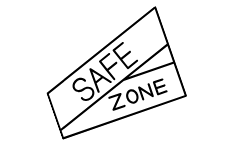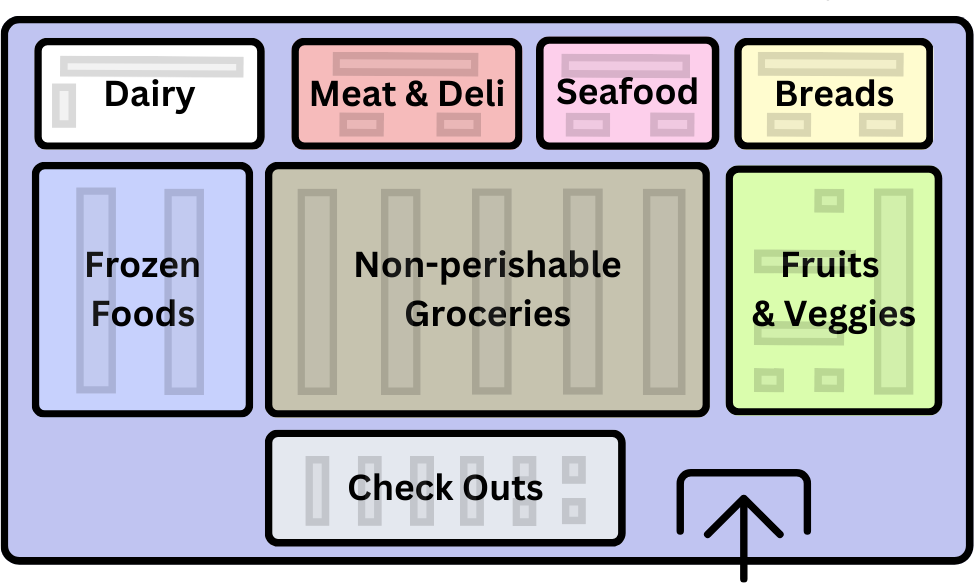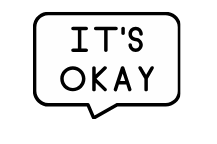Before going to the store...
The store can be a challenging place for some autistic & neurodivergent people.
Even if it is considered everyday to many, simply tolerating the way these trips can overload our brains can lead to exhaustion, burnout, or reactions like meltdowns and shutdowns.
As with many difficult experiences, it’s important to both reduce overwhelming input and regulate overload, giving us more brain power to tackle difficult tasks.
- Alternatives to going to the store in person:
-

Many stores will offer curbside service free of charge
Examples: Walmart, Sam‘s Club, Target, or ALDI

Delivery options:
- Directly from stores (like Walmart or ALDI)
- Delivery services (like Instacart)
- Meal Prep Boxes that are delivered (like Factor_ or Hello Fresh)

Ask family or friends to pick things up for you - If you need to go to the store in person, go with a plan:
-

If accessible and needed, come with someone from your support system. 
Before you go, make a list, even if you think you will remember what you want
- Start with the basics: like food staples or your favorite foods
- Check your fridge & pantry: are you getting low on anything?
- Think about non-food items, like toiletries or cleaning products

Plan what to do in a situation where you get overwhelmed beforehand. Take a break if you need to.
- It is okay to leave your cart and take time to recover.
- Know where you will go, such as the bathroom, the car, or a quiet spot in the store.
- When entering the store, find where the bathroom is: often at the far back of the store, or in the front by the checkouts.
- Check for in-store construction or temporary changes to the store online.

Plan your way around the store beforehand
- If you can go to a store you are familiar with, think about the route yo will take
- If it is a new store, many stores have similar layouts (see the store layout tab below for an example!)
- Typical store layout:
-
Store layouts tend to follow similar patterns. These vary store-by-store, but this map can give you a good idea where to start looking for the basics.

Things that can happen at the store
 The store is unpredictable and challenging things can happen. These are some of the things that can go wrong and are some problem-solving suggestions during distress.
The store is unpredictable and challenging things can happen. These are some of the things that can go wrong and are some problem-solving suggestions during distress.
Focus on controlling what you can, like sensory input, so you have more ability to deal with unavoidable stressors.
- Unexpected interactions with other shoppers
-
People’s unexpected actions can increase distress.
 People blocking aisles
People blocking aisles - Noisy people including children
- People seeming to judge behaviors, like stims
 Tips:
Tips:- Grocery stores are awkward and confusing for everyone
-
Most people just focused on their own thoughts, and will quickly forget encounters in the store
- Unexpected interactions with employees & security
-
Sometimes employees may misunderstand body language or taking time to make decisions,

This can mean:
- Employees may think you need help and approach you
- Security could become unfairly suspicious, follow, or confront you
Tips:
 Keep your receipt until you reach home
Keep your receipt until you reach home-
Take the time you need regardless of how others react
-
 You aren’t doing anything wrong, even if you feel accused
You aren’t doing anything wrong, even if you feel accused
How to handle overload at the store:
 Sensory overstimulation can be a huge contributor to overload. You may be more affected by these things than you realize, especially if you’ve been tolerating overload a long time, Just give these things a try, it just may be unexpectedly helpful.
Sensory overstimulation can be a huge contributor to overload. You may be more affected by these things than you realize, especially if you’ve been tolerating overload a long time, Just give these things a try, it just may be unexpectedly helpful.
-
- Sensory Accommodations
-
 Try wearing items that reduce sensory overload, like headphones or earplugs
Try wearing items that reduce sensory overload, like headphones or earplugsIt’s okay to use sensory & stimming tools, or to stim in public
- Some people are embarrassed, but these are healthy ways to cope

- You can choose more subtle stims and tools if you are worried
- Some people are embarrassed, but these are healthy ways to cope
- Avoid Busy Times
-
Avoid busy times, many people add to sensory and cognitive overload
 Right before closing people are often anxious and rushing, and there are frequent noisy announcements
Right before closing people are often anxious and rushing, and there are frequent noisy announcements- Things like weather events (like snowstorms), holidays, or common social events (like big sports events) can bring may people to the store at once
Look for times when the store is less busy
 Find times when fewer people are around, often very early or very late
Find times when fewer people are around, often very early or very late- Check if the store has sensory-friendly hours scheduled
- Extra Tips!
-
Take your time. Rushing can be overwhelming and make decisions hard.
Don’t judge yourself for needing help or accommodations, you aren’t the only one that struggles with experiences like these.
